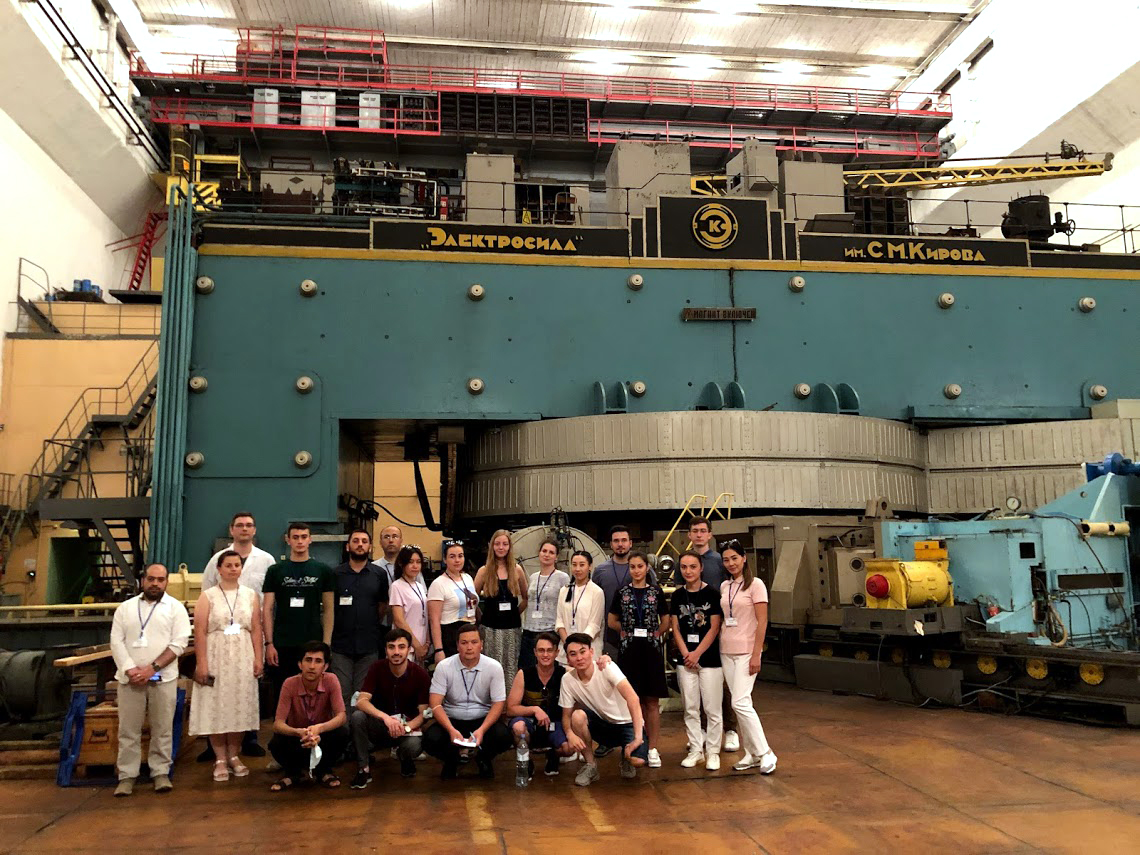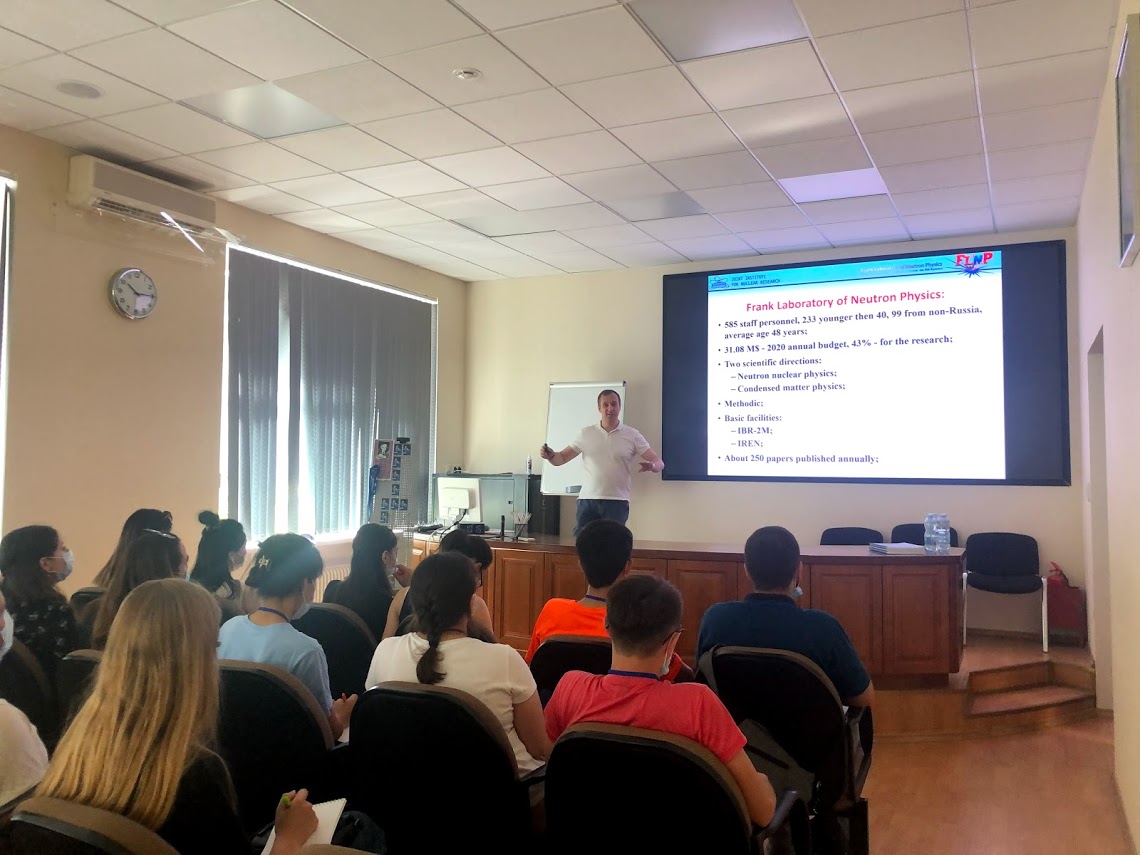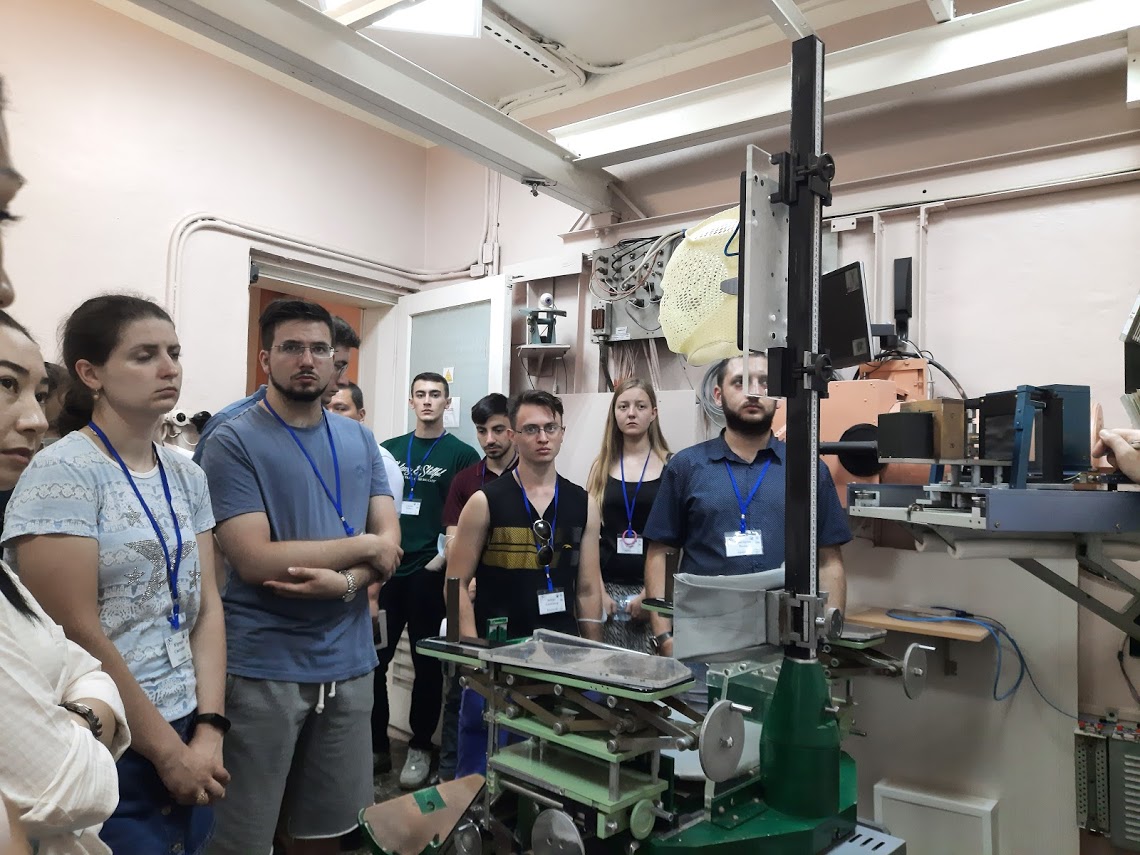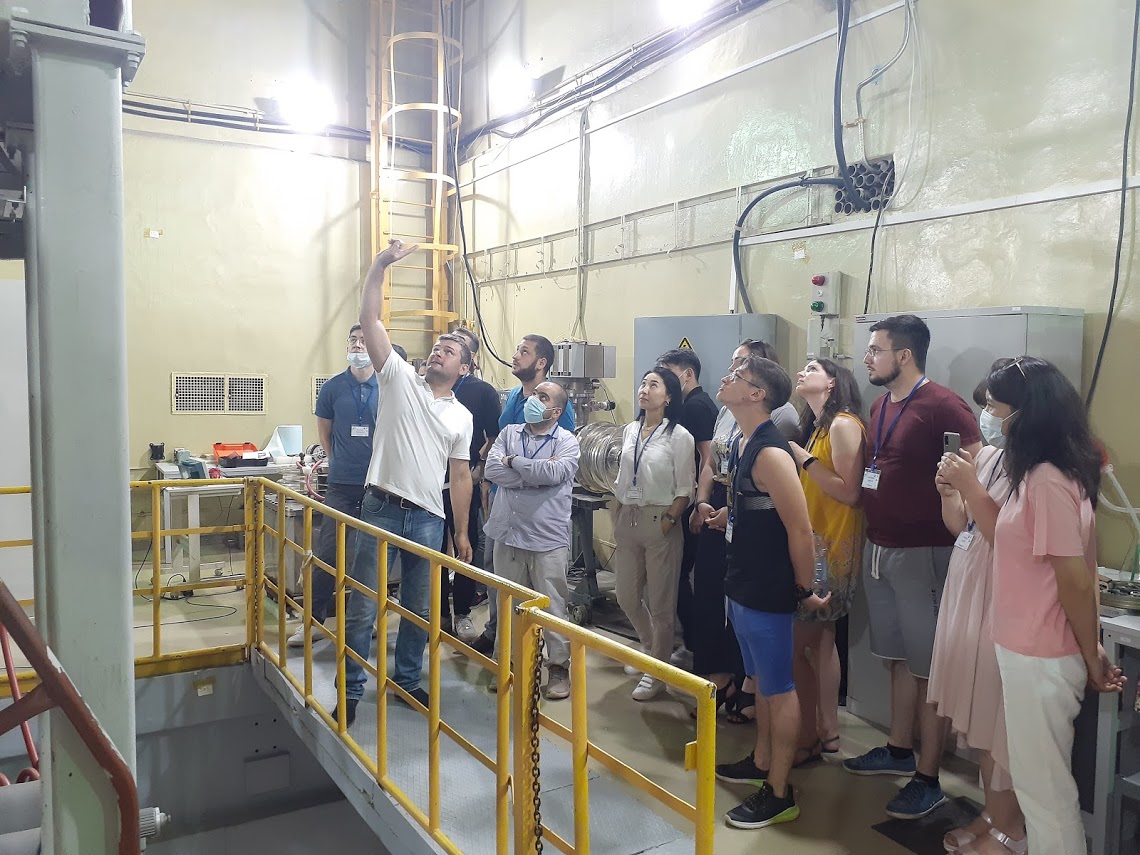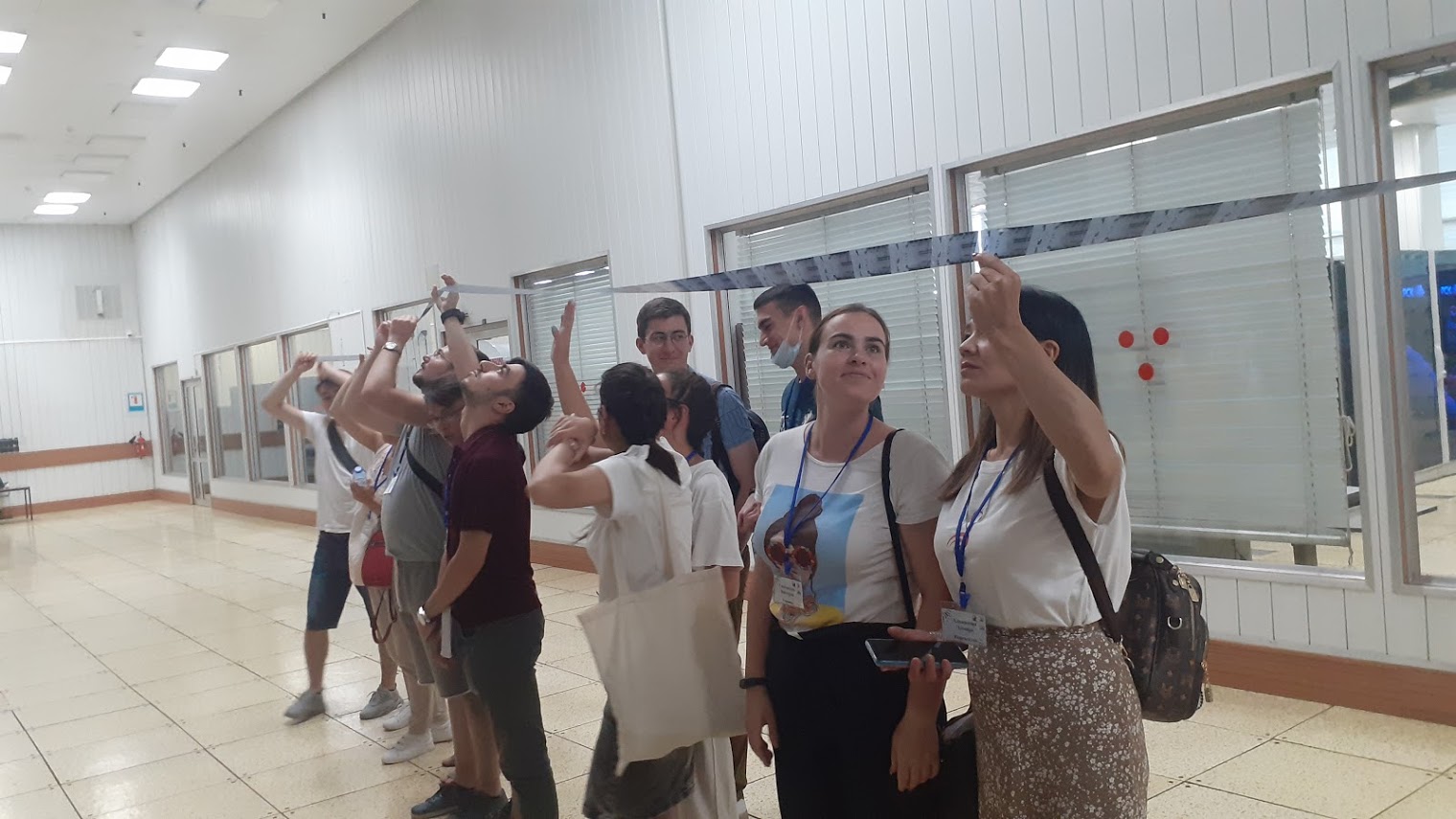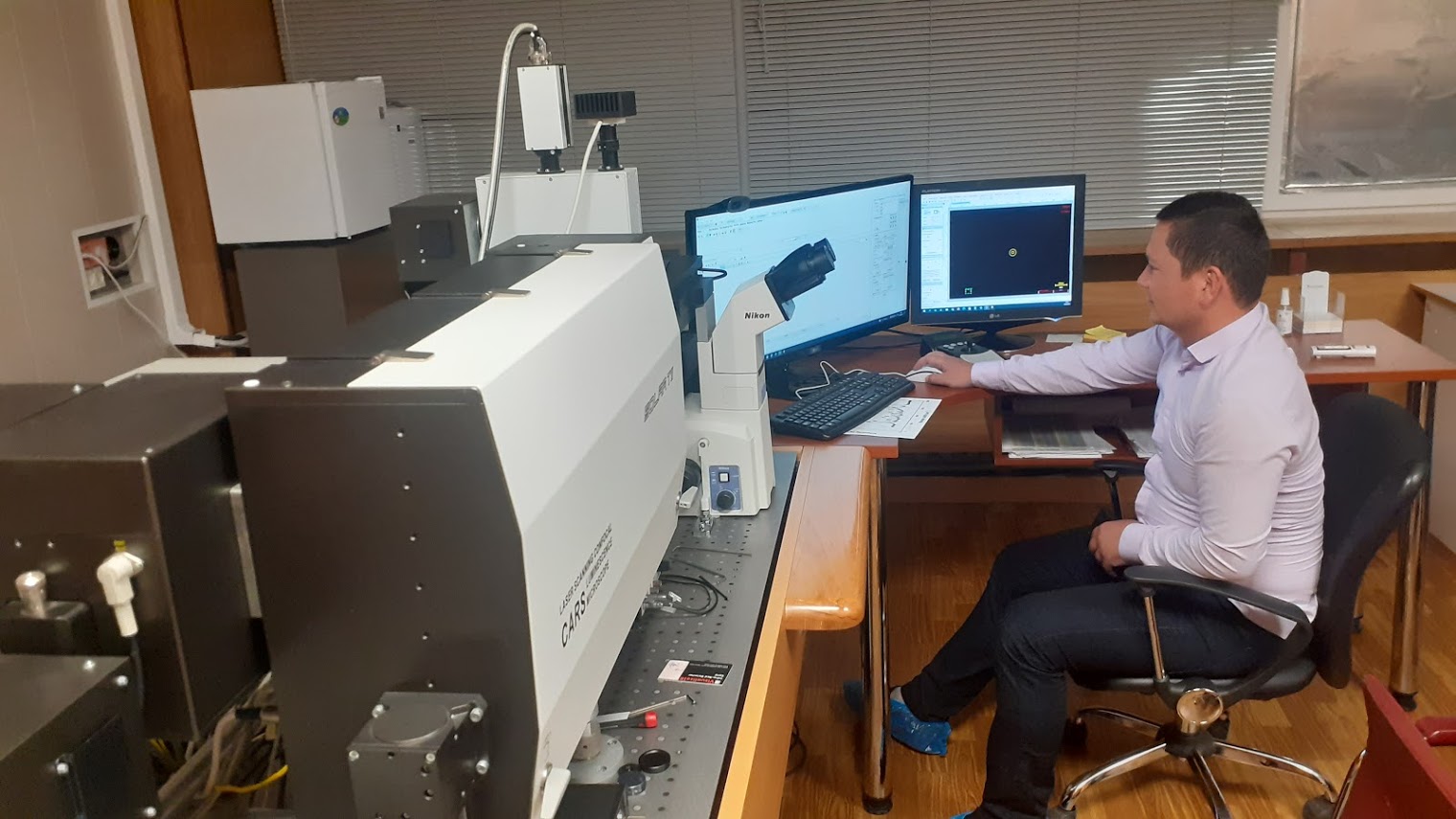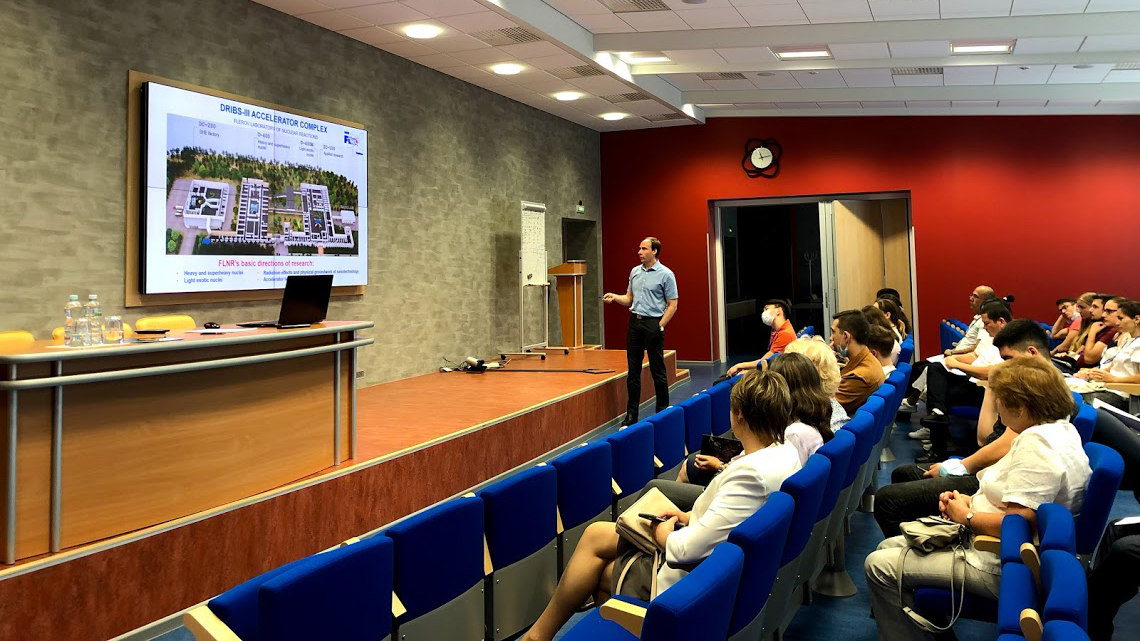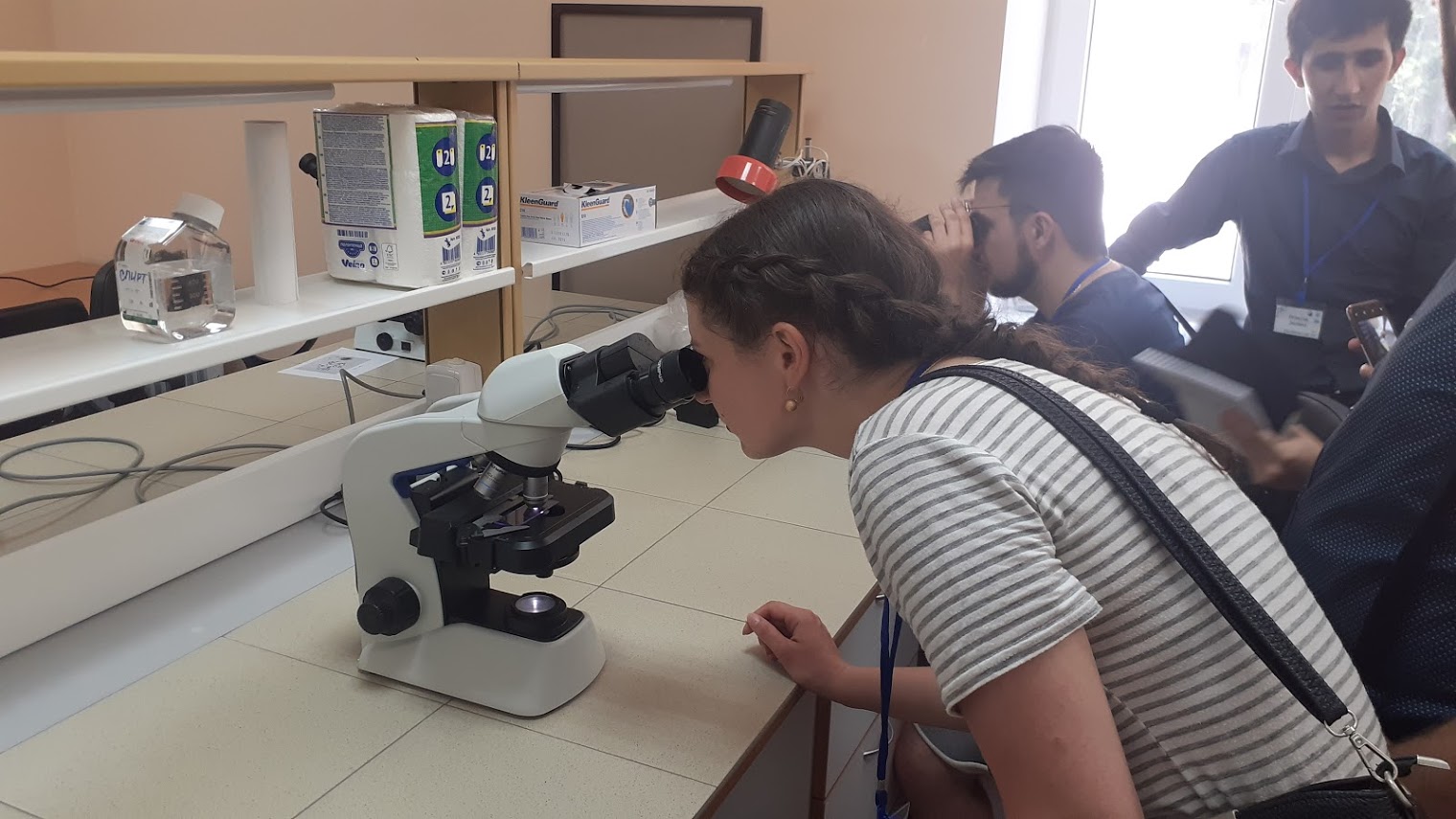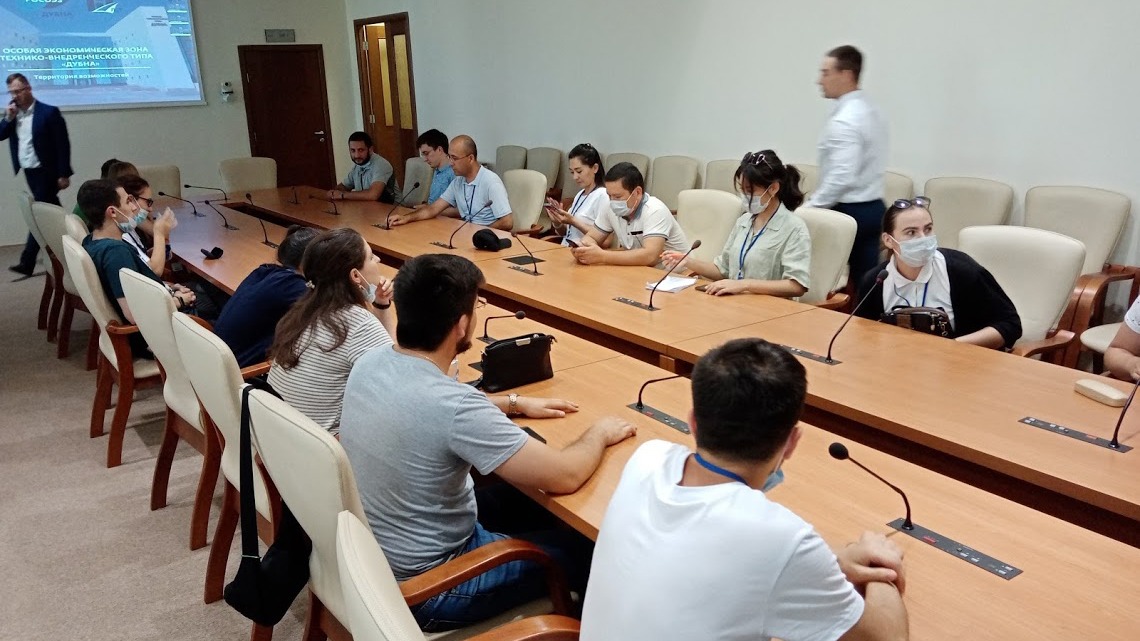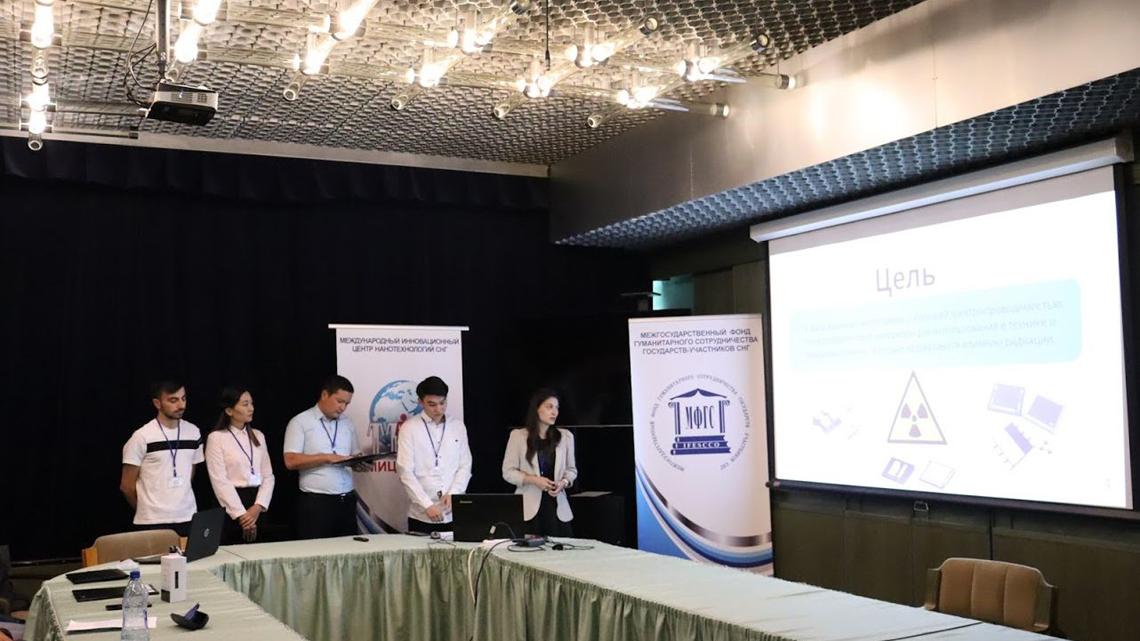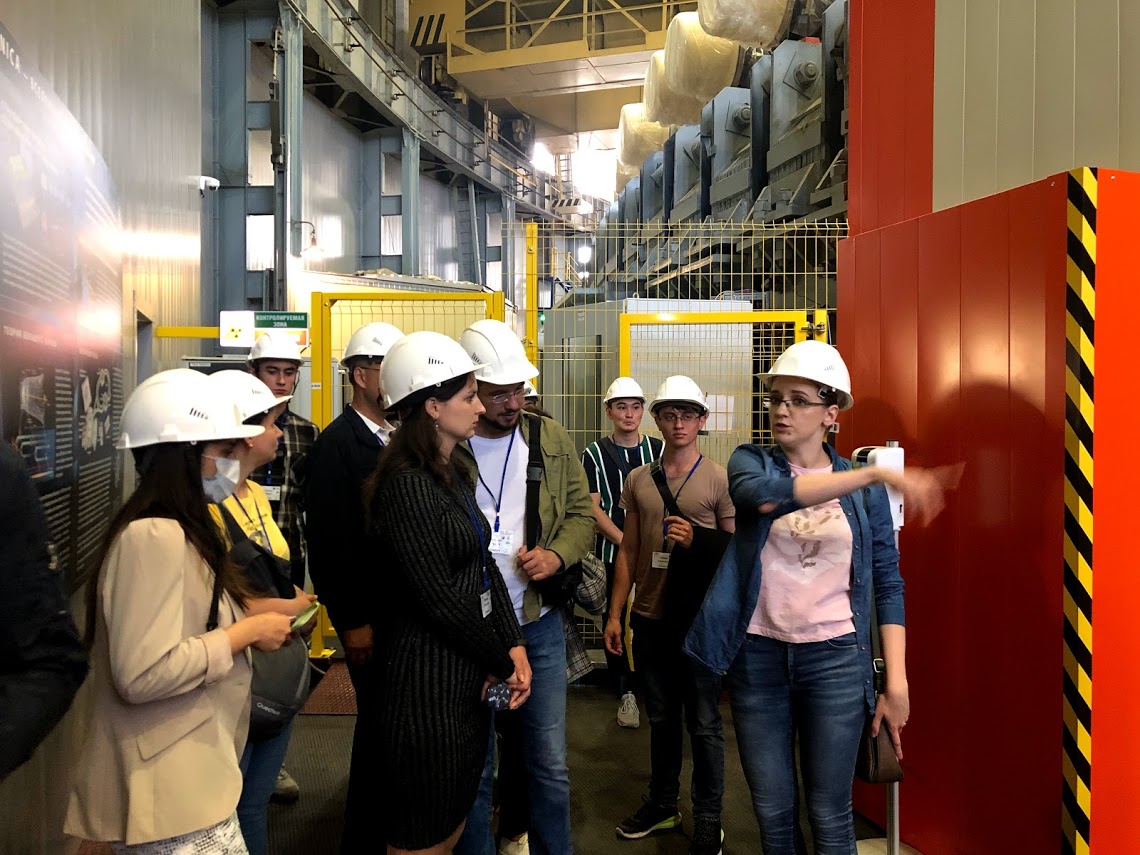14th Internship for young scientists from CIS countries finished
News, 20 July 2021
This year, the programme of the Internship for young scientists from the CIS countries in Dubna was fully accomplished despite the pandemic. Participants had excursions to all seven laboratories of JINR and the JINR University Centre, listened to the numerous lectures by leading JINR employees, visited the construction site of the NICA mega-science project and the Special Economic Zone “Dubna”.
The business programme included meetings with heads of innovation companies, the SEZ “Dubna”, visits to the resident companies of the SEZ, including NPK Dedal, Grant Bio Tech, PASCAL MEDICAL, LLC Radiotherapy Equipment Factory, Westmedgroup, OKAY VISION TECHNOLOGIES, and others.
At the very beginning of the Internship, young scientists were divided into groups comprised of representatives of different CIS countries. The task of each group was to present to the organizing committee a scientific or innovative project uniting the interests of participants. Students had been working on projects for a month. They managed to carry out research for them at equipment at the JINR laboratories. This year, the focus was on an opportunity to extend work on projects in the countries after the Internship is finished and to apply for grant support in 2022.
On the last day of the Internship, participants defended their projects developed by multinational teams using knowledge and information obtained during the Internship. ININC CIS Director A. V. Ruzaev noted the originality of topics chosen for projects, the thoroughness of their implementation, and highlighted the fact that these scientific projects can be applied for ININC grants, provided that further work on them is carried out.
At the ceremonial part, A. V. Ruzaev awarded diplomas on successful completion of the Internship for young scientists and specialists from the CIS countries to all participants.
“I would like to thank organizers of the Internship for an opportunity to visit such an institute as JINR. The Internship has been organized at a high level: when visiting the laboratories, we have seen with our own eyes how studies are being carried out, how the facilities, devices, and equipment operate. It is significant for young scientists. It expands the knowledge and skills of young specialists. We had great living conditions: we could visit sports sites, use bike rental, etc.,” Alena Stanchik (Belarus) said on behalf of participants.
“During the Internship by the ININC, I have gained experience and knowledge, first of all. And not only knowledge in the fields of nuclear physics but also the awareness that science is limitless. Having seen the scales of research, people engaged in science, I now realise that there is much to strive for in the long term. I express gratitude for the opportunity to take part in this Internship despite the difficulties caused by the pandemic. I think that each participant, including me, managed to gain valuable knowledge useful for their scientific realms,” a participant from Kazakhstan Nurtoleu Magazov said.
“I have plunged into the real vibe of an international scientific centre and acquired knowledge at lectures at the JINR laboratories. The Internship has influenced my choice of the scientific direction. Now I have a clear understanding of further development of my activities,” Arina Shanaeva, a student of the North Ossetian State University, shared her impressions.
The Internship in Dubna has become so popular among young scientists from the CIS countries that participants come to the ININC with particular goals, namely to conduct research using specialised unique equipment of the Institute.
Thus, Dilmurod Rakhmanov and Kakhramon Faizulaev from the NRC “Physics of semiconductors and microelectronics” at the National University of Uzbekistan expressed their deep gratitude for an opportunity to study the crystal structure of silicon samples using the Raman spectrometer under the supervision of G. M. Arzumanian at the Centre “Nanobiophotonics” (FLNP). They also thanked organizers for an opportunity to study electrical properties of Uzbek silicon and irradiation of the samples with alpha particles at the electrostatic accelerator EG-5 under the supervision of A. S. Doroshkevich at the Sector of Neutron Nuclear Interactions. The samples were delivered by participants from Kazakhstan. They are covered with pure titanium obtained by the method of detonation spraying at the CCDS2000 facility at the NRC “Surface Engineering and Tribology” in Ust-Kamenogorsk. According to the results of the research, an agreement was reached on the irradiation of a number of other samples in the future.
Anisa Kalmurzaeva and Elmira Almanova from Kyrgyzstan examined their samples of silver nanoparticles at FLNR in the sector of Physical-Chemical Structural and Metrological Studies at the Scanning Electron Microscope (SEM) under the guidance of A. N. Nechaev.
This year, a participant from Kazakhstan takes samples given by JINR for the first time. Nurtoleu Magazov got interested in research on active biomonitoring conducted at FLNP and agreed upon joint research “Assessment of environmental pollution in the vicinity of Ust-Kamenogorsk by active biomonitoring” with Head of the Sector of Neutron Activation Analysis and Applied Research I. Zinkovskaya (FLNP JINR). He has received 30 samples of acrocarp (Ceratodon purpures) moss for this work. The moss will be exposed in the vicinity of two metallurgical plants, a power station, and two parks of Ust-Kamenogorsk in Kazakhstan. After that, the samples will be returned to JINR for determining the concentration of elements in moss by neutron activation analysis and atomic absorption spectrometry. Joint work completed, it is planned to write an article.
The ININC CIS expressed deep gratitude to the heads of the laboratories and divisions of JINR for their assistance in holding and organizing the Internship.
Source: ININC CIS
